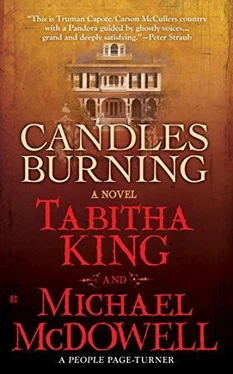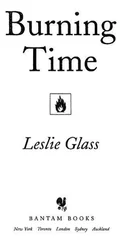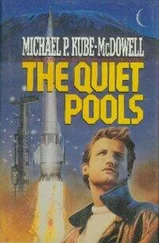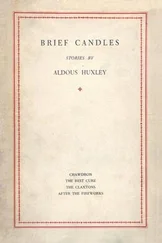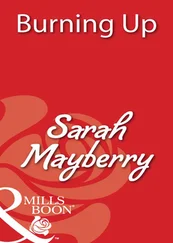Mama didn’t bother to hold an opinion on that. It was enough for her that Joe Cane Dakin paid the bills. The least Mama could do was to pretend to like the Edsel. She always derived a certain satisfaction from playing a role. Mama believed that being movie-star beautiful was the equivalent of having movie-star talent, though she would never, of course, be so common as to stoop to the hard work of becoming a real actress.
When Daddy wanted to attend a convention of Ford dealers in New Orleans, he drove us the three-hundred-some miles from Montgomery in Mama’s Edsel: Mama in the front seat, Ford and I in the back. The convention was due to start on Friday the fourteenth and run into the next week, permitting the dealers to treat themselves to Mardi Gras on the eighteenth. And the very next day, Ash Wednesday, would be my seventh birthday. I was promised not only a birthday cake but also the specialité du maison of the Hotel Pontchartrain, a concoction called Mile-High Pie.
Ford was able to make the trip because the convention fell during the February school vacation. I could have gone anyway, as my presence in Miz Dunlap’s first grade was not as strictly demanded as Ford’s was in Miz Perlmutter’s sixth grade. Whenever Daddy wanted me to keep him company on some drive to Birmingham or Mobile or wherever, I was allowed to play hooky. Miz Dunlap never said boo. Since Mama liked to pretend that Daddy never did anything that she did not tell him to do, when he took me with him, she always made it her idea; she would declare that if she didn’t get some relief from me, Joe Cane Dakin was gone have a wife in the mental hospital.
While Mama and Daddy were gone be in New Orleans, Ford and I might have stayed with Mamadee in Tallassee. But Daddy said ever’body ought to go to Mardi Gras once in their life. Unsaid but understood by us all was that Daddy wanted to be with me to celebrate my birthday. If he had to be away, he would just have to take me with him. Mama wasn’t very happy about having us in tow but she was gone find something to make her unhappy anyway and Daddy knew it.
In the car, Mama remarked that she had been to Mardi Gras and if she was gone go again, she would rather she did not have kids with her to fret about. She smoked Kools, one every half hour or so, and turned the pages of the latest Vogue as she told Daddy everything she had already told him before all over again. He smoked Lucky Strikes, one every fifteen minutes or so, and said not much of anything.
Just the day before the Gulf Coast had gotten cold enough so that snow fell in the Florida panhandle, which, if the lines on the map were drawn straight, would be southeast Alabama.
WITH the windows up against the cold, it was harder for me to hear the world outside of the Edsel, but that made me more aware of the workings of the Edsel itself, and of its occupants. Knowing them too well, I did my best to block them out.
We stopped at Daddy’s dealership in Mobile. He could not very well drive though Mobile and not stop. Mama harried me into the ladies’ room and out again and back into the Edsel, not because she cared if I wet myself or not or because I was dawdling; she just used me for an excuse to sweep in and out without having to converse much with the people who worked for Daddy.
Ford left the car only long enough to help himself to a Co’Cola. Daddy always called Co’Cola dope. Every time that he did, Mama said “dope” was slang, and A Man In His Position ought to know that using slang made him look like a country fool.
Uncle Lonny Cane Dakin came out, in his greasy overalls and with a big streak of black grease on his left cheek. Lonny Cane looked a lot like Daddy, if Daddy were for sale in a thrift shop.
Despite the cold, Daddy lowered all the windows before he went inside to air the cigarette smog out of the Edsel. When Uncle Lonny Cane started to lean in the open window next to Mama, she flinched away, glaring at his fingernails.
“My Lord, Lonny Cane Dakin, don’t you touch my car with those fingers!” she hissed. “You’ll get that grease ever’where.”
Uncle Lonny Cane froze with his hands clawed up, before shrinking back and tucking them behind his back like a kid who don’t want to admit to not washing up before dinner. His face shone red under the grease. He grinned so hard with embarrassment, I could see all the gaps between his few remaining crooked, poor boy’s teeth.
“Beg pardon, Miz Roberta,” he mumbled. Then he craned his leathery neck and squinted into the backseat at Ford and me.
Ford was closest to Lonny Cane, so I threw myself on top of him and let a rebel yell out Ford’s window. Mama flinched. Ford about choked on his Co’Cola. He threw me off him onto the floor. Uncle Lonny Cane’s guffaw was like circus music to my ears; it had the rude blat of a clown’s bulb horn.
“I’m getting a sick headache,” Mama wailed. “Calley Dakin, you hush your mouth right now. I do not want to hear from you again in this lifetime! Ford, go tell your daddy to hurry up, and bring me a BC!”
Ford took care to step on my right hand as he got out of the car again.
Mama covered her eyes with her hands and moaned.
I whispered into the back of Mama’s seat, “You want me to sing you a song, Mama?”
She drove her elbow back into the seat. That meant she didn’t want me to sing a song. I could sing like anybody but she never cared for my voice however I sang.
Ford came back and flung himself into the backseat.
Daddy opened the driver’s door and peered in. “I brang you some aspirin, Bobbie Ann, and a dope.” He had three open bottles between his big fingers by their necks.
“Don’t call me Bobbie Ann,” Mama said. “And don’t use slang, Joseph. Make that child sit in her seat and be still! I told you we should have left her at home.”
“With your mama? Over my dead body. And you wouldn’t hear of calling on Ida Mae,” Daddy said.
Mama stiffened right up like I give her a poke. My used-to-be nursemaid, Ida Mae, was a delicate subject between them, months and months after Mama had fired her.
Daddy hesitated. He seemed to be on the edge of saying more. But he didn’t.
Ford cocked his eyebrows at me mockingly as he took a long swallow of his Co’Cola. He was eleven then, mostly legs, and mean as cat-dirt. Mama doted on Ford because he was a real Carroll—so much a Carroll that Ford already looked down his nose at Daddy for being a Dakin. But Ford took the Carroll character a step further—he looked down on Mama for having married a Dakin. Mama doted on Ford all the more for this.
Daddy settled in behind the wheel and handed back one of the open bottles to me. “I heard that yell, Sunshine. Had to make you thirsty.”
I did not know how thirsty I was until then. Co’Cola makes me burp though, and I did, which made Mama moan again and Ford snigger.
What with Mama having a sick headache, there was even less than no chance of radio music. When Daddy and I were on one of our road trips, I could sit in the front seat, and he would let me ramble up and down the dial, listening wherever I wanted, at as much volume as I could get out of the radio. But when Mama was with us, we were hardly ever allowed to have the radio. I had to sing to myself, inside my head, and a blessing it was that I could. Ida Mae Oakes had taught me to look for the blessings.
Though I had been allowed to bring a shoebox of my paper dolls with me, with Ford within reach, I could not play with them in the backseat of the Edsel. They were in my suitcase in the trunk, alongside my red Elvis Autograph Phonograph that Daddy had given me for Christmas, and some of my 45s, and the Valentine card that I had made for Daddy at school. I particularly wished that I could play with my Rosemary Clooney paper doll. Mama did not care for me singing Rosemary Clooney songs when I played with the paper doll, so I had to whisper them.
Читать дальше
